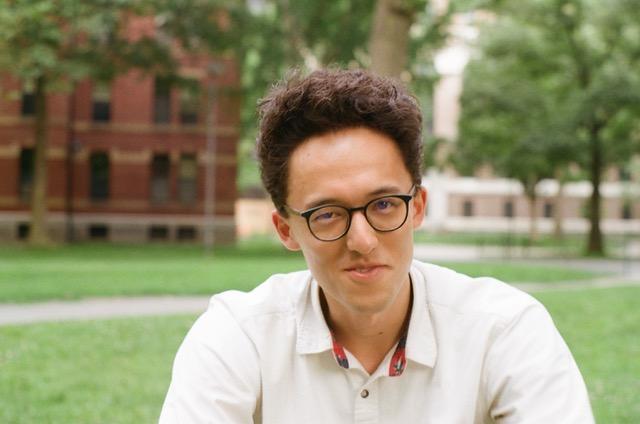TA Spotlight: Thomas Hikaru Clark

Thomas Hikaru Clark was a high school teacher with no plans for academia when he learned about the research being done at MIT’s Department of Brain and Cognitive Sciences. “During my undergrad, I was interested in computer science and linguistics, but never really found a satisfying way to combine those research interests,” he says. “But then a classmate from college connected me with the exciting, interdisciplinary language research happening at BCS, re-sparking my desire to pursue research.”
Clark, now a second-year PhD student in BCS, didn’t leave his passion for teaching behind, as evidenced by his recent TA Spotlight Award. The award is a chance for BCS graduate students to nominate peers who have gone above and beyond in their dedication and commitment to TA-ing.
Clark recently TA-ed for Course 9.66 (Computational Cognitive Science) with professor Josh Tenenbaum. “My favorite thing about TA-ing is working with students during office hours and recitations,” he says. “Taking complex ideas and breaking them down into smaller components, along with providing examples and multiple levels of explanations, feels very rewarding. It was great to see the progress among students who consistently came to office hours over the course of the semester.”
A particularly memorable moment from the class was the first glimpse of experimental data students collected for their final projects. “Examining this data and generating visualizations allowed the students to take ideas from the class and actually investigate how they stack up with reality,” he says.
Clark’s research combines experimental and corpus data with AI language models to understand information-theoretic pressures on language production and processing. “I’m particularly interested in how people solve the complex problem of communication despite constraints, such as in non-neurotypical populations,” he says. Clark is co-advised by Roger Levy and Ted Gibson.
TA-ing has contributed to his research, Clark says. “Being a TA for 9.66 reinforced my knowledge of core computational cognitive science concepts, exposing me to the latest papers and meeting new people, such as the other TAs and the students in the class. I have enjoyed staying in touch with some of the students I mentored, including at least one student who is working on expanding his project into a publishable work,” he says. “Being able to help out with this is giving me a broader repertoire of cognitive science skills.”
What would be Clark’s advice for BCS students? “Don’t worry too much about extrinsic incentives like grades, and simply pursue the things that you find exciting, interesting, and thought-provoking. Find the people and resources who will help you learn more about these topics and ask lots of questions. Finally, make sure to prioritize your mental health and well-being.”
“TA Spotlights” is an occasional series featuring BCS’s most outstanding teaching assistants, their work, and their journey as educators.

